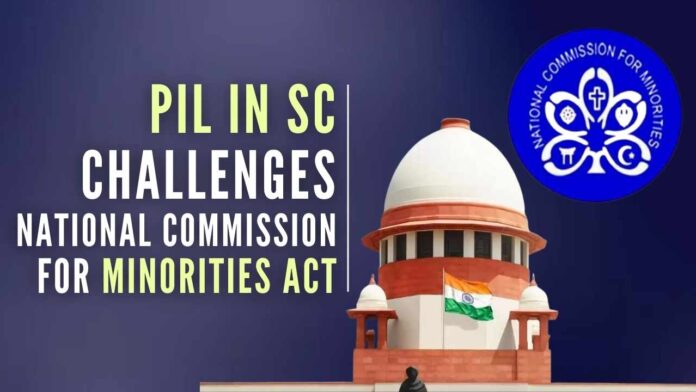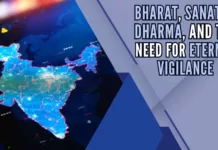
Petitioner seeks directions from the Centre to define ‘minority’ and lay down guidelines
A Public Interest Litigation (PIL) has moved the Supreme Court challenging the validity of Section 2 (C) of the National Commission for Minorities (NCM) Act, 1992 terming it ‘arbitrary’ and ‘contrary’ to the Constitution.
Petitioner Devkinandan Thakur Ji, filed through Advocate Ashutosh Dubey, also sought directions from the Centre to define ‘minority’ and lay down guidelines for the identification of minorities at the district level in order to ensure that only those religious and linguistic groups, which are socially economically politically non-dominant and numerically very inferior, get the benefits and protections guaranteed under Articles 29-30.
“Hindus are merely 1 percent in Ladakh, 2.75 percent in Mizoram, 2.77 percent in Lakshadweep, 4 percent in Kashmir, 8.74 percent in Nagaland, 11.52 percent in Meghalaya, 29 percent in Arunachal Pradesh, 38.49 percent in Punjab and 41.29 percent in Manipur but the Central government has not declared them ‘minority’ under Section 2(c) of the NCM Act and Section 2 (f) of the NCMEI Act, thus Hindus are not protected under Articles 29-30 and cannot establish-administer educational institution of their choice,” the PIL contended.
It further stated that the Act using unbridled power under S. 2(c), the Centre arbitrarily notified five communities — Muslims, Christians, Sikhs, Buddhists, and Parsi — as minorities at the national level.
Cause of action continues to date because followers of Judaism, Bahaism, and Hinduism, who are real minorities in Ladakh, Mizoram, Lakshadweep, Kashmir, Nagaland, Meghalaya, Arunachal Pradesh, Punjab, Manipur, cannot establish and administer educational institutions of their choice because of non-identification of ‘minority’ at the state level, thus jeopardizing their fundamental rights guaranteed under Article 29-30, the PIL claimed.
Their right under Articles 29-30 is being siphoned off illegally to the majority community in the state because the Centre has not notified them as ‘minority’ under NCM Act. Followers of Judaism, Bahaism, and Hinduism are being deprived of their basic rights to establish and administer educational institutions of their choice.
“On the other hand, Muslims are in the majority in Lakshadweep (96.58 percent) and Kashmir (96 percent) and there is a significant population in Ladakh (44 percent), Assam (34.20 percent), Bengal (27.5 percent), Kerala (26.60 percent), Uttar Pradesh (19.30 percent) and Bihar (18 percent); can establish & administer educational institutions of their choice. Christians are a majority in Nagaland (88.10 percent), Mizoram (87.16 percent), and Meghalaya (74.59 percent), and there is a significant population in Arunachal, Goa, Kerala, Manipur, Tamil Nadu & West Bengal, which can also establish and administer,” it read.
Likewise, Sikhs are a majority in Punjab and there is a large population in Delhi, Chandigarh, and Haryana, but they can establish and administer. Similarly, Buddhists are the majority in Ladakh but they can establish and administer educational institutions of their choice, the PIL added.
PGurus is now on Telegram. Click here to join our channel and stay updated with all the latest news and views
For all the latest updates, download PGurus App.
- Delhi: Stir over Biryani served on plates with Bhagwan Shri Ram’s image - April 23, 2024
- Rajasthan: PM Modi launches scathing attack on Congress; says ‘My 90-Sec Speech Created Panic’ - April 23, 2024
- Delhi Court extends Arvind Kejriwal, K Kavitha’s judicial custody till May 7 in money laundering case - April 23, 2024










